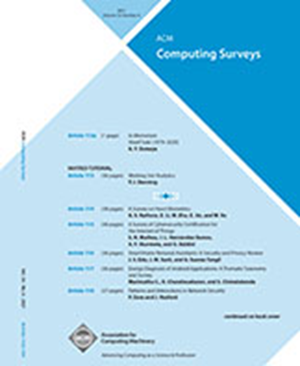软件公平:分析与调查
IF 28
1区 计算机科学
Q1 COMPUTER SCIENCE, THEORY & METHODS
引用次数: 0
摘要
在过去的十年中,研究人员将公平性作为一种软件属性进行了研究。特别是,如何设计公平的软件系统。这包括指定、设计和验证公平性属性。然而,将偏见作为软件工程关注的工作的前景尚不清楚,即分析基于学习的软件的公平性属性的技术和研究。在这项工作中,我们提供了软件公平性分析的最新技术的清晰视图。为此,我们收集、分类并深入分析了164篇研究学习型软件系统公平性的论文。具体而言,我们研究了评估的公平度量、研究的任务、公平分析的类型、提出的方法的主要思想和访问级别(如黑盒、白盒或灰盒)。研究发现:(1)公平问题(如公平规范和需求工程)研究不足;(2)对条件公平、顺序公平和交叉公平等公平措施的探索不足;(3)半结构化数据集(如音频、图像、代码和文本)在SE社区中很少用于公平性分析;(4)软件公平性分析技术很少采用白盒、处理中的机器学习(ML)分析方法。总之,我们观察到几个开放的挑战,包括需要研究交叉/顺序偏见、基于政策的偏见处理和人在循环、社会技术偏见缓解。本文章由计算机程序翻译,如有差异,请以英文原文为准。
Software Fairness: An Analysis and Survey
In the last decade, researchers have studied fairness as a software property. In particular, how to engineer fair software systems. This includes specifying, designing, and validating fairness properties. However, the landscape of works addressing bias as a software engineering concern is unclear, i.e., techniques and studies that analyze the fairness properties of learning-based software. In this work, we provide a clear view of the state-of-the-art in software fairness analysis. To this end, we collect, categorize and conduct in-depth analysis of 164 publications investigating the fairness of learning-based software systems. Specifically, we study the evaluated fairness measure, the studied tasks, the type of fairness analysis, the main idea of the proposed approaches and the access level (e.g., black, white or grey box). Our findings include the following: (1) Fairness concerns (such as fairness specification and requirements engineering) are under-studied; (2) Fairness measures such as conditional, sequential and intersectional fairness are under-explored; (3) Semi-structured datasets (e.g., audio, image, code and text) are barely studied for fairness analysis in the SE community; and (4) Software fairness analysis techniques hardly employ white-box, in-processing machine learning (ML) analysis methods. In summary, we observed several open challenges including the need to study intersectional/sequential bias, policy-based bias handling and human-in-the-loop, socio-technical bias mitigation.
求助全文
通过发布文献求助,成功后即可免费获取论文全文。
去求助
来源期刊

ACM Computing Surveys
工程技术-计算机:理论方法
CiteScore
33.20
自引率
0.60%
发文量
372
审稿时长
12 months
期刊介绍:
ACM Computing Surveys is an academic journal that focuses on publishing surveys and tutorials on various areas of computing research and practice. The journal aims to provide comprehensive and easily understandable articles that guide readers through the literature and help them understand topics outside their specialties. In terms of impact, CSUR has a high reputation with a 2022 Impact Factor of 16.6. It is ranked 3rd out of 111 journals in the field of Computer Science Theory & Methods.
ACM Computing Surveys is indexed and abstracted in various services, including AI2 Semantic Scholar, Baidu, Clarivate/ISI: JCR, CNKI, DeepDyve, DTU, EBSCO: EDS/HOST, and IET Inspec, among others.
 求助内容:
求助内容: 应助结果提醒方式:
应助结果提醒方式:


